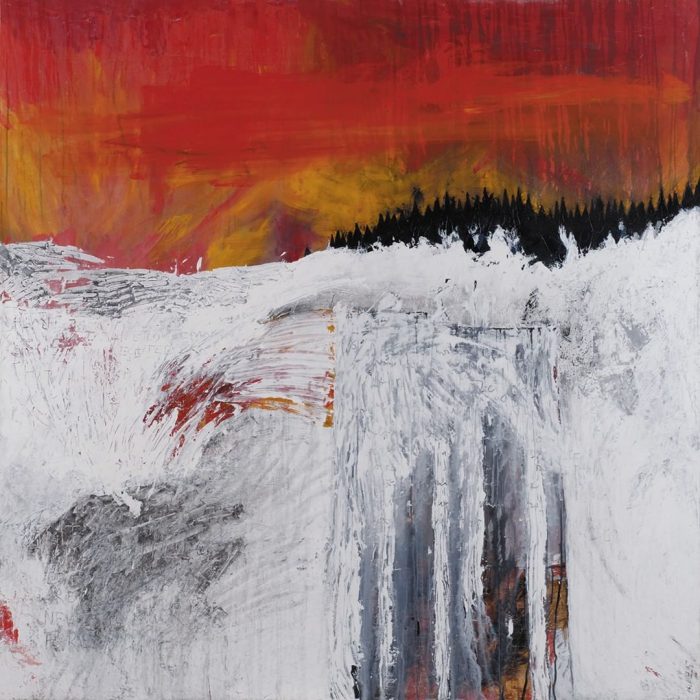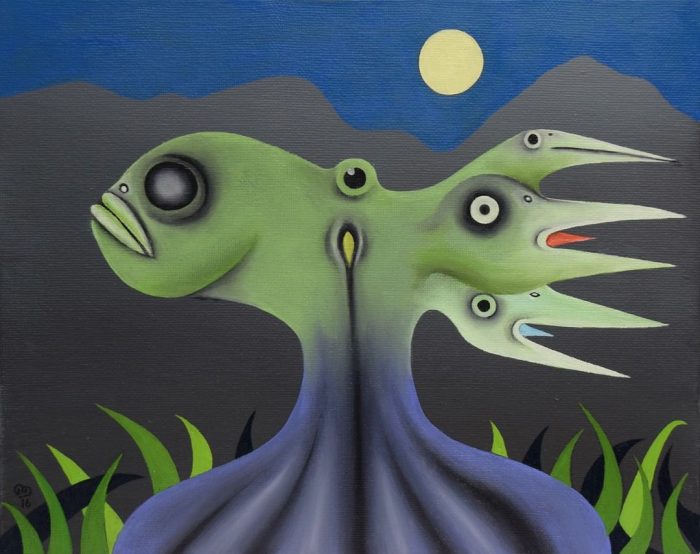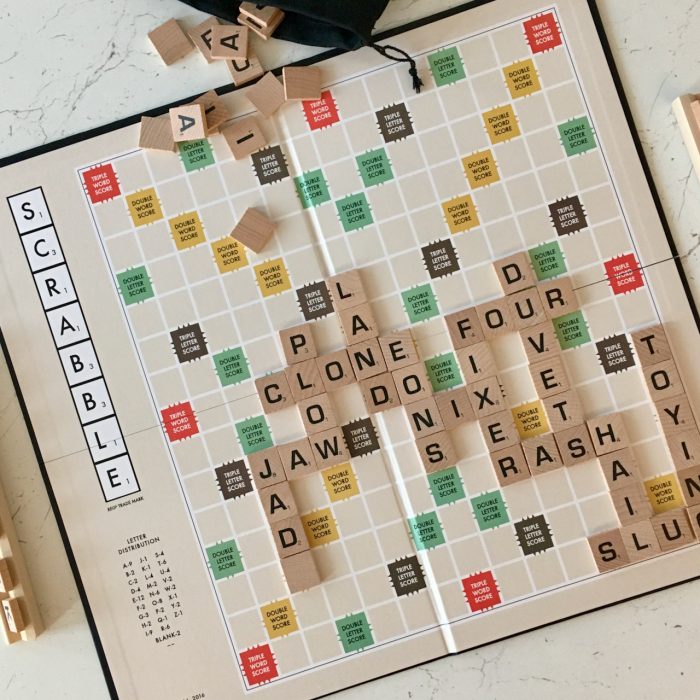
Curated by The Arts Institute of The University of Plymouth:
“The Ancient Mariner Big Read is an inclusive, immersive work of audio and visual art from the 21st century that reflects the sweeping majesty and abiding influence of Samuel Taylor Coleridge’s 18th century epic poem.”
Divided into forty episodes, the multimedia project combines each reading with a piece of visual art like the one above1, created by Stanley Donwood, for the eleventh instalment.
The list of readers is varied and each one brings a unique voice to their given section of the ballad. The moment when the mariner shoots the albatross is delivered with added menace by Willem Defoe; while Olivia Laing’s reading is steeped in sorrow as she describes the “curse in a dead man’s eye!”

At less than two minutes per instalment, the poem is made readily digestible. And the combination of ambient sound and distinct delivery bring each section of the poem into sharper relief.
Returning to Laing’s section of the poem, for example, I was struck anew by the following two stanzas:
“The moving Moon went up the sky,
And no where did abide:
Softly she was going up,
And a star or two beside—Her beams bemocked the sultry main,
Like April hoar-frost spread;
But where the ship’s huge shadow lay,
The charmèd water burnt alway
A still and awful red.”
The juxtaposition of the moonlight with the bloody sea distinctly captures the beauty of Coleridge’s writing while conveying imagery that is inherently melancholy and horrifying. This instalment also provided my favourite image2 thus far (above), created by Desmond Morris. Like Coleridge, he perfectly captures the contrast between the beautiful and the grotesque.
As of this morning, the project reached the half-way point but it’s never too late to jump in. Each episode can be enjoyed in various places, including YouTube and Spotify. However, the richest experience comes from the project website itself where each reading is complemented with the art work, contextual information, critical commentary, and the relevant stanzas of the poem.
So pull up a chair and listen to the “bright-eyed” mariner’s tale.
